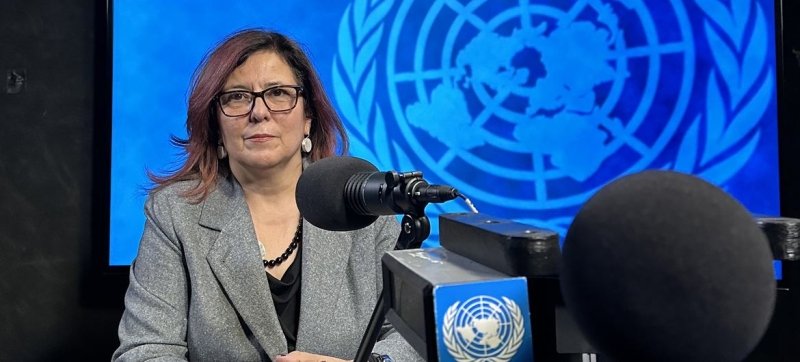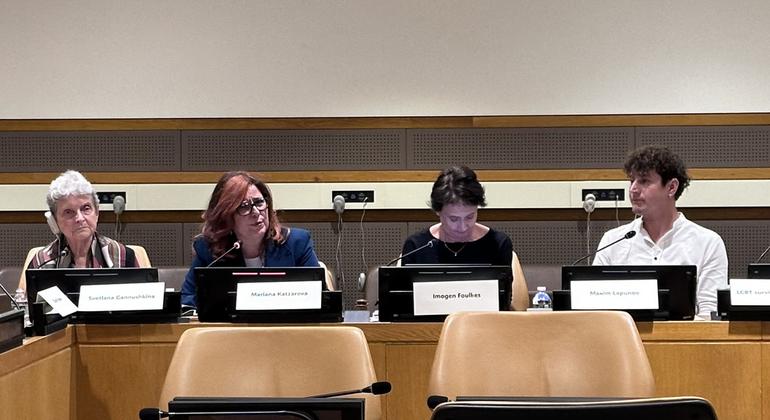
Special Rapporteur on human rights in Russia Mariana Katsarova. “Torture in Russia as an instrument of repression at home and aggression abroad”: new report by Special Rapporteur Mariana Katsarova Human Rights
In her first thematic report to the General Assembly, the UN Special Rapporteur on the situation of human rights in the Russian Federation Mariana Katsarova reports on “the complicity of the Russian state in widespread and systematic torture” and its encouragement of these acts.
“Systematic Torture”
“Since the full-scale invasion of Ukraine in February 2022, torture has become a state-sanctioned instrument of systematic oppression used to control society and silence dissent, as well as to undermine the foundations of human rights and civic space in Russia,” the UN expert said.
The main findings of the report indicate that there is no separate crime for torture in Russian legislation. Torture is prosecuted as a lesser crime, which does not allow for adequate punishments proportionate to this crime and compensation for victims.
“A Wide Range of Torture Methods”
“Russian law enforcement agencies, intelligence agencies, and the military employ a wide range of torture methods, many of which have acquired infamous names that terrify victims,” says Katsarova. “These include mock executions known as “shooting,” brutal beatings known as “priyomka,” rape, prolonged solitary confinement, and punitive psychiatry.
“Victims are subjected to repeated electric shocks to sensitive areas of the body, including the genitals, using a modified military field telephone in methods known as “call a friend” or “call Putin,” Katsarova notes. “These are just a few examples of torture methods aimed at inflicting severe physical and psychological pain.”

Instrument of repression
The report highlights the impact of torture on political prisoners, human rights defenders and anti-war activists, conscientious objectors and conscripts, lawyers, journalists, LGBT persons, migrants and asylum seekers, indigenous peoples and minorities, and women and girls.
Torture in Chechnya
“State complicity in crimes against women and girls, including ‘honour crimes’ and female genital mutilation, exacerbates the violence they face, particularly in Chechnya and the North Caucasus region, where such practices are widespread,” the Special Rapporteur noted. “In Chechnya, LGBT persons face extreme violence, including enforced disappearances and state-sanctioned torture in secret detention centres. After their release, their relatives are offered to deal with them with impunity in order to “wash away the shame from the family.” This practice shows that the Russian state neglects and violates international human rights standards.”
“The Courts Side with the Criminals”
According to Mariana Katsarova, the courts regularly ignore well-founded reports of torture, siding with the criminals rather than with justice. As a result of this unchecked impunity, she says, torture has become the norm in Russian society, where violence is perceived as entirely acceptable and even encouraged, as was the case after the March 2024 Moscow terrorist attack, when state television showed suspects being tortured.
Hundreds of Ukrainians Detained
“The use of torture is not only a domestic problem, it has profound implications for international peace and security,” the expert said. “Hundreds of Ukrainian detainees, including civilians and prisoners of war, are forcibly transferred within Russian-occupied territories of Ukraine or deported to the Russian Federation, where they are held incommunicado and tortured for information or as punishment.” She called for the immediate release of all Ukrainian prisoners in Russian prisons and their return to Ukraine.
“I call on the Russian authorities to undertake fundamental reforms to establish an effective system of accountability to end impunity for torture and ill-treatment, and I urge the international community to use domestic criminal jurisdiction, including universal jurisdiction, to prosecute individuals accused of torture in the Russian Federation,” Katsarova added.
In an interview with the UN News Service, she recalled that, according to reports, Ukrainian journalist Victoria Roshchina died in custody. “The Russian government does not confirm this. Under what circumstances did she die? What happened to her in a Russian prison? She was in Taganrog. This pretrial detention facility is known for its torture,” the expert noted.
The full version of Marina Katsarva’s interview is available in audio format.
UN Special Rapporteurs are independent experts appointed by the UN Human Rights Council. They are not UN employees and do not receive a salary from the organization for their work.
